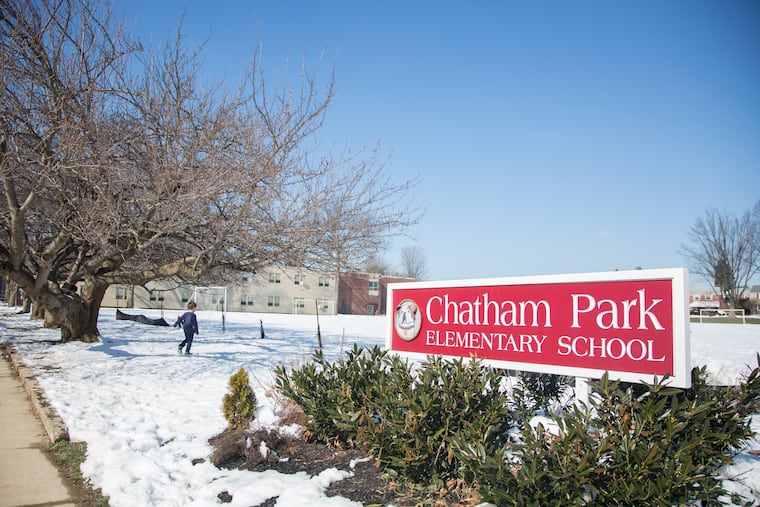Depending on where you live, you may have to fight for your child’s afterschool care | Maria Panaritis
Don't buy the nonsense that parents should quit their jobs if their town doesn't have elementary school child care. Here's a Philly suburb that at least tries to care.

It’s silly season in the suburbs. Not the funny-ha-ha kind. We are talking pull-your-hair-out-of-your-head craziness.
Working parents of elementary school kids need no explanation. They’re in the thick of this madness. It strikes every winter like a virus or head lice.
Some parents are staring into the abyss that is the looming mandatory registration period for the fall semester at their local public elementary schools. The registration part isn’t the drama, the part that goes along with it is: Whether you can buy your child a slot in a school-based child-care class for the few hours between when the bell rings and Mom and Dad get home from work.
It’s like a lottery drawing from hell. The prize, if you are lucky, is that your child is not left out on the sidewalk at age 8 while you continue to work feverishly in an office for the boss who has no idea that your child almost ended up on a sidewalk alone at age 8.
If demand is too high, and you are turned away — though you are willing to pay an arm and a leg for every hour your child spends on school property being cared for in the afternoons — you are left in the cold. If you live in a community with few alternative resources, you may then run into the problem of who exactly will drive your kid from the school to an off-site facility run by someone else.
I discovered last year, after desperate parents in Haverford Township found me to share their dismay over exactly such a shortage, that this is one of the most distressing challenges that hardworking parents face in silence.
Depending on where you live, you may have to fight for what can be a limited number of after-care slots available at your child’s school through a third-party provider, who provides the service like a contractor with the district. If the school runs out of slots, the district is under no obligation to help you find another option.
It’s not like you can just quit your job and say, “Oh, well. No biggie.” Quitting means losing the savings you need to send that child to college. It’s also the only source of 401(k) income for many people.
This is why this week, I went looking for a community that at least seems to be trying to care about its kids above and beyond what its bureaucrats insist they are obligated to do.
I found such a magical place: Abington Township.
It, too, has had too-high demand for elementary-school after-care spots, from what I was told. But at least this town’s leaders, institutions, and social service providers have a place where you can go with your gripe. A place dedicated to making it a healthy town for raising families.
Abington Community Taskforce has been in existence since 1996. And it owes its existence to a brutal Philadelphia murder, of all things.
Community members formed the group soon after several boys who had attended Abington High School were implicated in the baseball-bat beating death of Eddie Polec on the steps of St. Cecilia’s Roman Catholic Church in the Fox Chase section of Northeast Philadelphia in 1996.
Founding member Rosemary Hinkle told me that churches, the YMCA, police, the school district — all came together for regular meetings that happen to this day. They wanted to identify what more the town could do to improve the lives of kids and families.
What they found, in the early going, was interesting.
“All these community leaders and representatives of organizations would come together to network and try to figure out where the holes are in the community, so that one or more of the organizations could partner to cover some of those holes in some way,” Hinkle told me. “After-school [care] was actually a very big hole.”
The problem, more specifically, was that latchkey kids in middle and high school were idle and getting into trouble. The cops eventually formed a Police Athletic League, said founding member and former Police Chief William Kelly.
I asked if the task force was aware of any reported problems with after care shortages in the schools. Hinkle and one other member said it had not been brought to their attention. But at least a place exists where parents can bring their desperate pleas for help.
“The communities doing the good stuff need a pat on the back," the former chief said, urging other towns to follow suit, “and the communities that need a clue about what to try next — need a clue.”